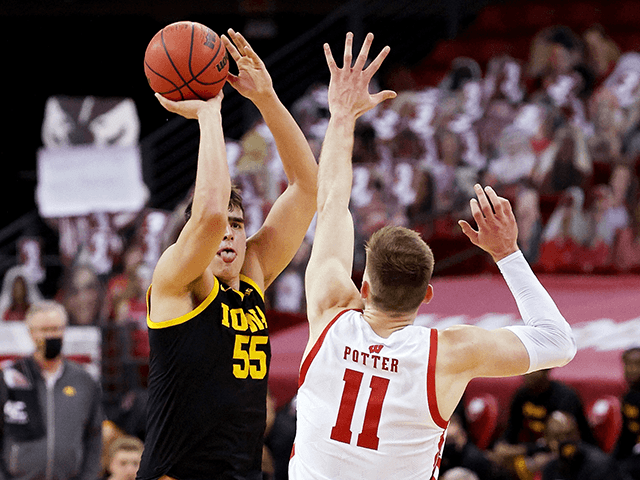A congressional bill called the Amateur Athletes Protection and Compensation Act of 2021, introduced by Sen. Jerry Moran (R-KS) on Wednesday, creates a wide range of changes for college athletes from the current NCAA guidelines. The proposed legislation, which is expected to pass later this spring, will allow student-athletes more freedoms regarding compensation for the use of their name and likeness, a broadened scholarship period, and the option to keep eligibility after entering a professional draft.
“The Amateur Athletes Protection and Compensation Act would create a national standard of guidelines to make certain student-athletes can benefit from the use of their name, image and likeness without hurting their eligibility to compete as a student-athlete,” Moran said. “Athletics teach young men and women many valuable skills that serve them throughout their life, and it’s important to protect their ability to pursue an education while allowing them to capitalize on their name, image, and likeness as a student-athlete.”
The bill creates an independent body, called the Amateur Intercollegiate Athletics Corporation, to “create and enforce rules and best practices” for student athletes that plan to earn money from their name, image, and likeness, without hurting their eligibility to compete. Athletes will be able to enter professional drafts without losing eligibility as long as they do not receive compensation from a professional sports league, team, or agent. The athlete would need to declare their intentions within seven days after the completion of the draft.
Moran’s legislation allows students greater freedom concerning scholarship and medical care, as it prevents schools from removing athletes from scholarship due to injury, ability, or performance, and compels schools to cover all out-of-pocket medical expenses for any injury suffered due to athletic participation. The bill will require that schools cover the full cost of scholarships until a student-athlete completes their undergraduate degree.
Student-athletes will also be able to transfer schools at least once without being penalized.
According to Sports Illustrated (SI), the legislation is “mid-range” politically. “Moran’s legislation isn’t as restrictive as right-leaning, NCAA-friendly bills from Senator Roger Wicker (R-Miss.) and Senator Marco Rubio (R-Fla.),” SI reported. “But isn’t as athlete-friendly as those from [Sen. Chris] Murphy and [Rep. Lori] Trahan as well as the College Athletes Bill of Rights, released in December from Sens. Richard Blumenthal (D-Conn.) and Cory Booker (D-N.J.).”
SI suggested Democrats were hoping for a more expanded bill that gives student-athletes “the most rights,” while Republicans want rules that are “most friendly to the NCAA.”
This month, Notre Dame announced it did not want its players to participate in an EA Sports NCAA college football video game without the development of rules that would allow their athletes to be paid. “As those rules are developed, it is our strong desire that student-athletes be allowed to benefit directly from allowing their name, image, and performance history to be used in the game,” Notre Dame said.
Notre Dame head coach Brian Kelly added that just as the school has “empowered our players when it comes to providing a platform to speak on racial inequalities & social issues that are important to them,” the school “must support them when it comes to NIL & the work that still needs to be done.”

COMMENTS
Please let us know if you're having issues with commenting.